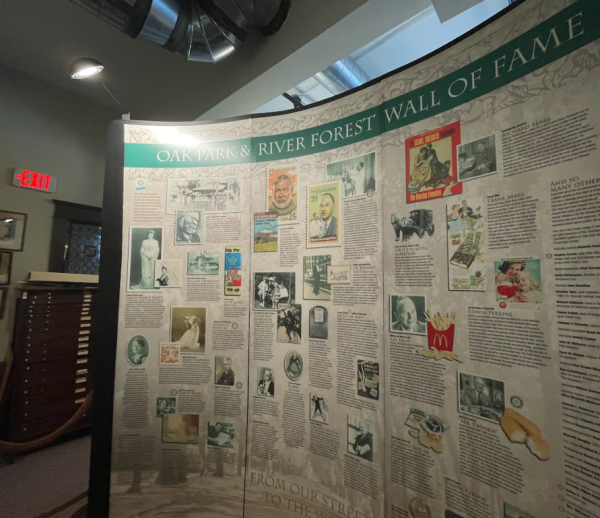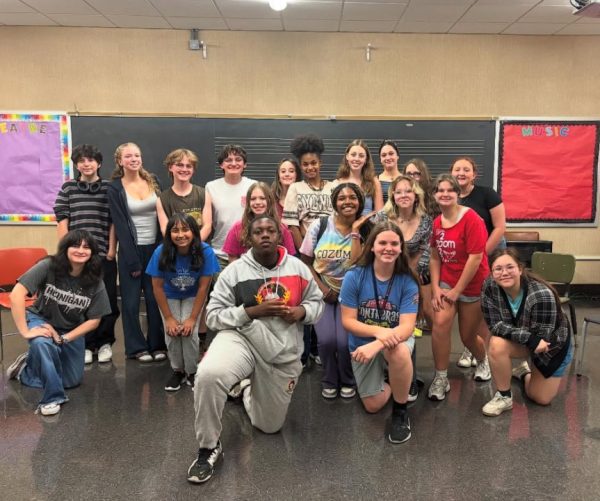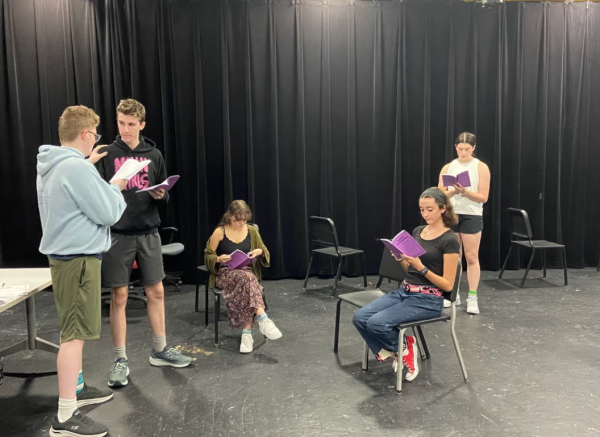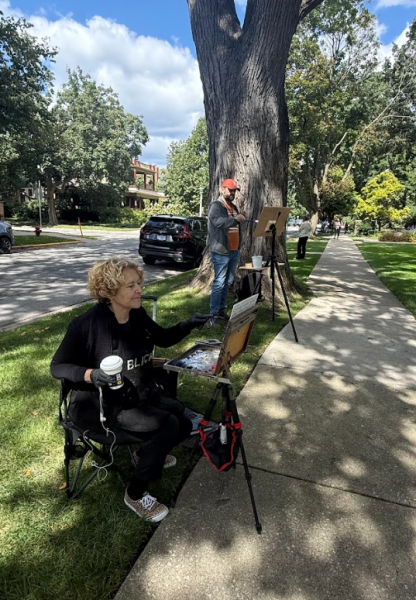Alum’s staged reading spotlights past injustice
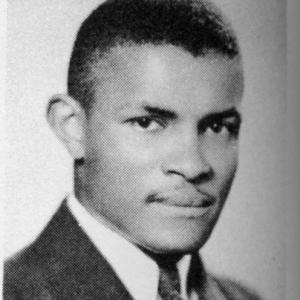
Lewis Pope
When faced with a challenge, that is when someone’s morals become clear. That was the theme of “The Ebony Streak,” a staged reading of a play that premiered Nov. 6 in Oak Park and River Forest High School’s Little Theater. “The Ebony Streak” was written by Kevin Bry, an OPRF alumnus.
Based on real events, “The Ebony Streak” tells the 1937 story of when Lewis Pope, a 17-year-old African-American football player at OPRF, wasn’t allowed to participate because of his skin color. In 1937, OPRF was offered a chance to play the High School National Championship in Miami, Florida. Miami required that, for OPRF to play, Pope not attend the game, due to the segregation and racism of 1930s Miami.
“The Ebony Streak” depicts how the incident played out. Instead of the administration, coaches and students standing with Pope, they abandoned him, leaving him waving goodbye to his teammates as they left for Miami. Pope narrates, telling the story while his younger self experienced and dealt with the situation. The style of writing exemplifies how Pope has had time to reflect on how things played out.
With minimal costumes, props and a limited set, the performance allowed the actors to give detailed depictions of the different kinds of relationships characters had with each other, adding to the feeling of realism.
While Pope was being pressured by his coach and teammates to let his team go without him, community members were pressuring the team and the OPRF administration to decline the invitation if Pope could not attend. This was well executed by having cast members play different members of the press, and have them step up and deliver parts of historical articles and letters written. One of these letters was by Percy Julian, the famous scientist and civil rights activist. Julian spoke out, when the public found out that Pope would not be allowed to play the game against Miami because of his race.
“I didn’t feel like I was worthy,” said Ty Mayberry, who played Percy Julian. “He was an exemplary man.” In the letter by Julian that Mayberry read in the play, Julian wrote that OPRF officials had, “officially paid tribute to the teaching of hate in our schools.”
This play shows, with raw and unfiltered honesty, what black people had to go through in the North, dismantling the incomplete truth that the North was exempt from racism.
“I thought it was a really interesting story, and it was interesting why they chose to tell this story,” said Nichelle Stigger, a teacher at Gwendolyn Brooks Middle School. “He went to the high school, but it had a deeper meaning with a black boy, a star athlete not being able to play for his team.” “The Ebony Streak” told not only a story about an OPRF alumni, but it also told a story about opportunities and how race can affect those opportunities.
“The Ebony Streak” does not have another performance scheduled as of this publication, but, with the positive reception from the audience at the Nov. 6 performance, it would not be surprising if The Ebony Steak hits the stage once more.
“It’s such a compelling story and the community reaction is so uplifting,” said Bry.

